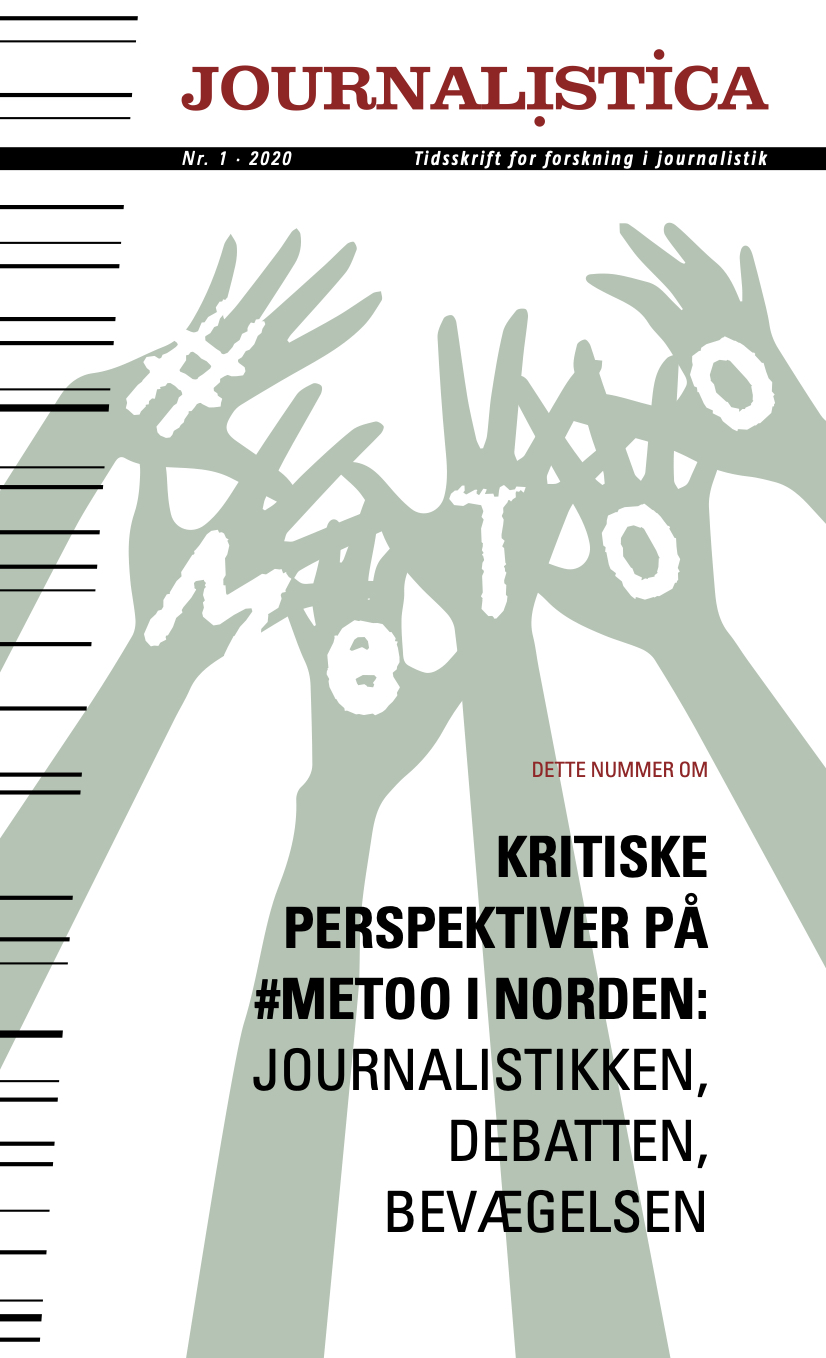Journalistisk dækning af danske shitstorme
Genmæle, vidensbidrag og kildekontakt
DOI:
https://doi.org/10.7146/journalistica.v0i1.123495Nøgleord:
shitstorm, medieskandaler, journalistiske idealer, sociale medier, electronic word-of-mouth (eWOM)Resumé
I denne artikel undersøger vi, hvordan danske journalister dækker det relativt nye, online mediefænomen ’shitstorme’. Vi argumenterer først for, at shitstorme er et biprodukt af negativ electronic word-of-mouth på sociale medier, og at shitstorme skal forstås i sammenhæng med allerede eksisterende studier af medieskandaler. Herefter etablerer vi en analyseramme til vores indholdsanalyse ud fra en række journalistiske idealer, som vi mener, at de fleste professionelle journalister bør kunne tilslutte sig – at journalister bør lytte til og give den anklagede part mulighed for genmæle, forsøge at tilføje nye og eksklusive kilder og perspektiver til deres historier og verificere og faktatjekke informationer. Vores empiri er indsamlet via Infomedia og består af i alt 1.107 artikler, der omhandler 10 shitstorme fra 2019. Vi kan ud fra vores analyse konkludere, at de fleste journalister lader den anklagede part komme til genmæle, og at journalisterne også forsøger at tilføje eksklusive og nye kilder og perspektiver til deres historier. Ydermere kan vi konkludere, at shitstorme, hvor kritikken er rettet mod politiske aktører, i højere grad motiverer kildekontakt. Med afsæt i de analytiske konklusioner diskuterer vi afslutningsvis idealernes relevans i dækningen af shitstorme.
Downloads
Publiceret
Citation/Eksport
Nummer
Sektion
Licens
Copyright (c) 2020 Emil Olsen, Nicklas Andersen, Ida Zachrau

Dette værk er under følgende licens Creative Commons Navngivelse (by).
Forfattere, der publicerer deres værker via dette tidsskrift, accepterer følgende vilkår:
- Forfattere bevarer deres ophavsret og giver tidsskriftet ret til første publicering, samtidigt med at værket er omfattet af en Creative Commons Attribution-licens, der giver andre ret til at dele værket med en anerkendelse af værkets forfatter og første publicering i nærværende tidsskrift.
- Forfattere kan indgå flere separate kontraktlige aftaler om ikke-eksklusiv distribution af tidsskriftets publicerede version af værket (f.eks. sende det til et institutionslager eller udgive det i en bog), med en anerkendelse af værkets første publicering i nærværende tidsskrift.
- Forfattere har ret til og opfordres til at publicere deres værker online (f.eks. i institutionslagre eller på deres websted) forud for og under manuskriptprocessen, da dette kan føre til produktive udvekslinger, samt tidligere og større citater fra publicerede værker (se The Effect of Open Access).




